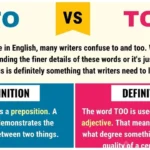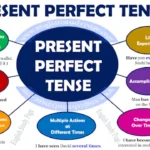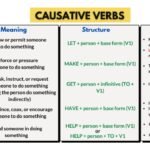Use of Could: Could is a Modal Verb, Which is used in everywhere, If you want to learn English Or English Grammar Could is the most Important part of English Grammar without learning Modal Verbs you won’t be able to complete any sentence in English, so this is very necessary.
Use of Could: All Imformation, Rules & examples
Could is used As Past Ability: Used to describe what someone was able to do in the past.
Example: When I was Younger, I Couldn’t run fast
Could is used As Possibility : Used to indicate that something is possible but no certain
Example: Could i Borrow Your Pen.
Could is used As Polite Request and Suggestion: Used to make Polite Request and Suggestion.
Example: Could You Please Passes the Salt
Could is used As Conditional Statement: Use in Conditional Statment to dercribe what might happed under certain Condition.
Example: If I had more time., I travel more.
There Are 8 Rules To Used Could
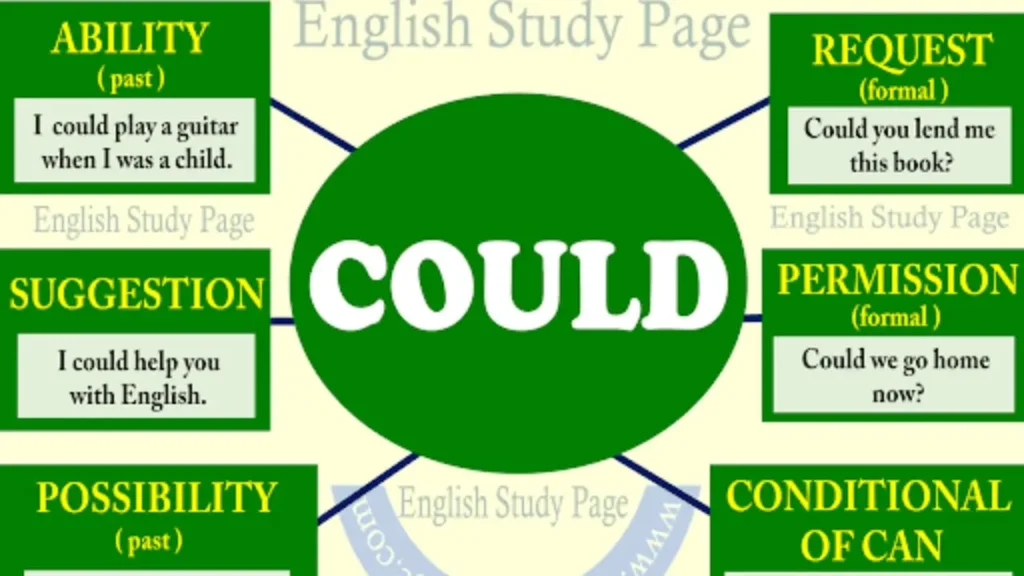
Rule 1: To Show Ability And Capacity Of Past
Examples:
- She could bake a delicious cake.
- He could speak fluent French.
- They could solve complex equations.
- We could swim across the lake.
- You could play the piano beautifully.
- I could fix the broken computer.
- John could run a marathon.
- She could paint stunning landscapes.
- He could lift heavy weights.
- They could design impressive buildings.
Rule 2 : To Know Onc’s
Example:
- Could she solve the problem?
- Could he finish the task?
- Could they find the location?
- Could we complete the project?
- Could you understand the lesson?
- Could I help you with that?
- Could John make the meeting?
- Could she learn the new skill?
- Could he pass the exam?
- Could they attend the event?
Rule 3 : As The Past Form Of can
Examples:
- She could have passed the test.
- He could have won the race.
- They could have completed the project.
- We could have visited the museum.
- You could have solved the puzzle.
- I could have finished the book.
- John could have fixed the car.
- She could have cooked dinner.
- He could have caught the bus.
- They could have found the keys.
Rule 4 : To Show A Lead Capacity Or Ability
Examples:
- She could lead the team.
- He could manage the project.
- They could inspire the group.
- We could organize the event.
- You could direct the operation.
- I could handle the situation.
- John could coordinate the tasks.
- She could oversee the process.
- He could guide the newcomers.
- They could supervise the wor
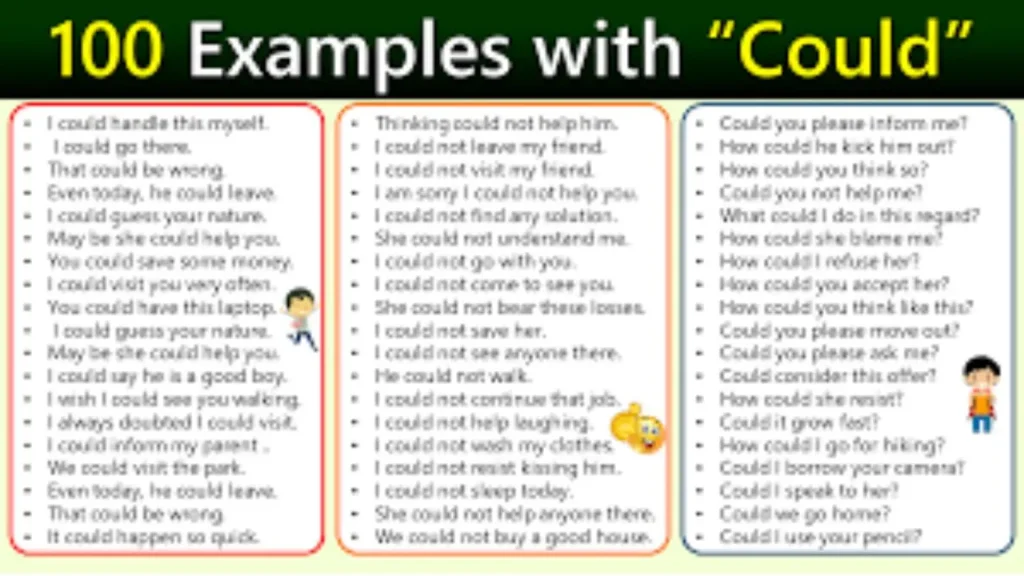
Rule 5 : To Show Regret
Note:
This shows that the subject has the ability to do some work in the past but regret is shown, due to not being able to complete it.
Examples:
- She could have attended the party, but she decided to stay home.
- He could have finished the project on time, but he procrastinated.
- They could have won the game, but they made too many mistakes.
- I could have studied harder, but I wasted too much time.
- We could have visited Paris, but we didn’t plan our trip well.
- You could have told me about the problem, but you kept it to yourself.
- She could have apologized earlier, but she was too stubborn.
- He could have saved more money, but he spent it on unnecessary things.
- They could have fixed the issue, but they ignored the warning signs.
- I could have helped you, but I didn’t realize you needed assistance.
Rule 6 : To Show The Target Of A Past Action Which So that
Examples:
- She studied all night so that she could pass the exam.
- He saved money for years so that he could buy a house.
- They arrived early so that they could get good seats.
- John took extra classes so that he could improve his skills.
- The team practiced hard so that they might win the championship.
- I left work early so that I could attend the concert.
- She cooked a large meal so that everyone could enjoy the party.
- They fixed the car so that they could go on the road trip.
- We cleaned the house so that it could be ready for guests.
- He worked overtime so that he might finish the project on time.
Rule 7 : We Some Phesal Uses
Note:
This structure shows that the subject had become such a victim of some habit or nature of his during the time that he could not stop anyone else from doing something, i.e. he did the deed.
Examples:
- She couldn’t help laughing at the comedian’s jokes.
- He couldn’t help admiring the beautiful sunset.
- They couldn’t help feeling excited about the upcoming trip.
- John couldn’t help noticing her new haircut.
- The children couldn’t help running towards the ice cream truck.
- We couldn’t help wondering about the mysterious noise.
- You couldn’t help smiling when you saw the puppy.
- She couldn’t help crying during the emotional movie.
- He couldn’t help imagining what life would be like in another city.
- They couldn’t help discussing the latest news.
Rule 8 : Not Allow To do Any Work
Note:
This indicates that the subject is not allowed to do any other work during the phantom period, i.e. he is stopped from doing any work.
Examples:
- She couldn’t help the team from falling behind.
- He couldn’t help the students from getting distracted.
- They couldn’t help the staff from losing focus.
- John couldn’t help the employees from feeling overwhelmed.
- The manager couldn’t help the interns from making mistakes.
- We couldn’t help the developers from facing delays.
- You couldn’t help the workers from missing deadlines.
- She couldn’t help the assistants from feeling frustrated.
- They couldn’t help the volunteers from becoming discouraged.
- He couldn’t help the engineers from encountering problems.
Read Also:
- Use Of Can: All Information, Rules & Examples
- Noun in Hindi: Definition, Rules and Examples
- Collective Noun in Hindi: Definition, Rules & Examples
- Common Noun in Hindi: Definition, Facts & Examples
- Proper Noun in Hindi: Definition, Facts & Examples

